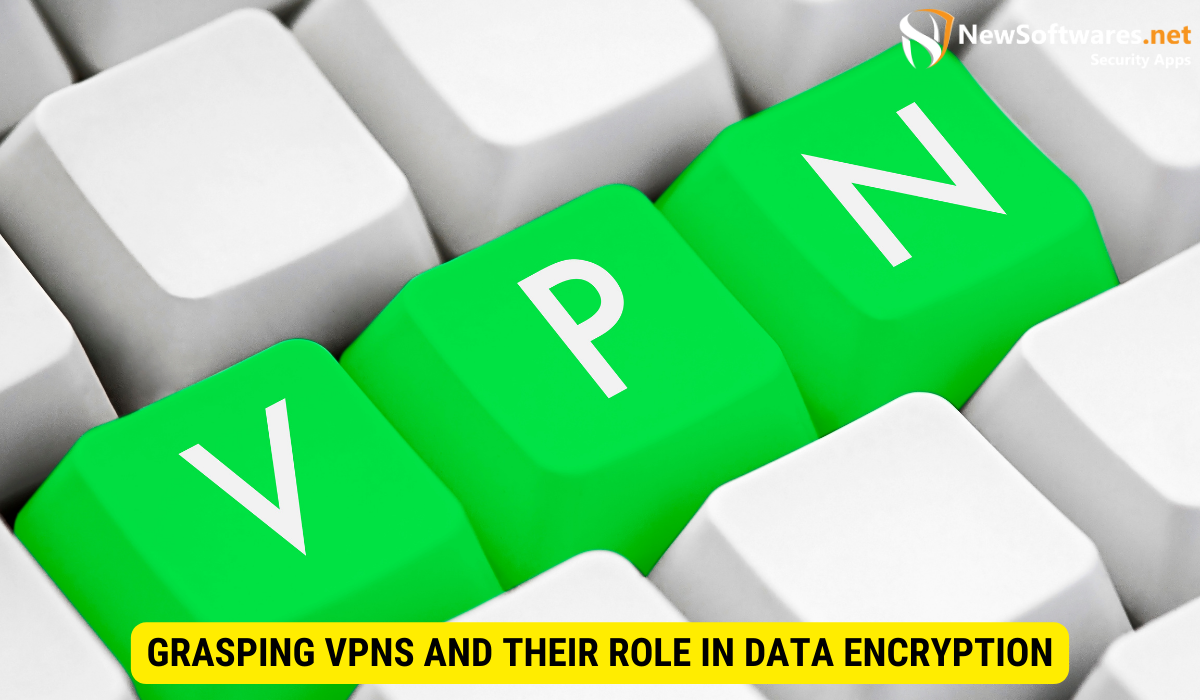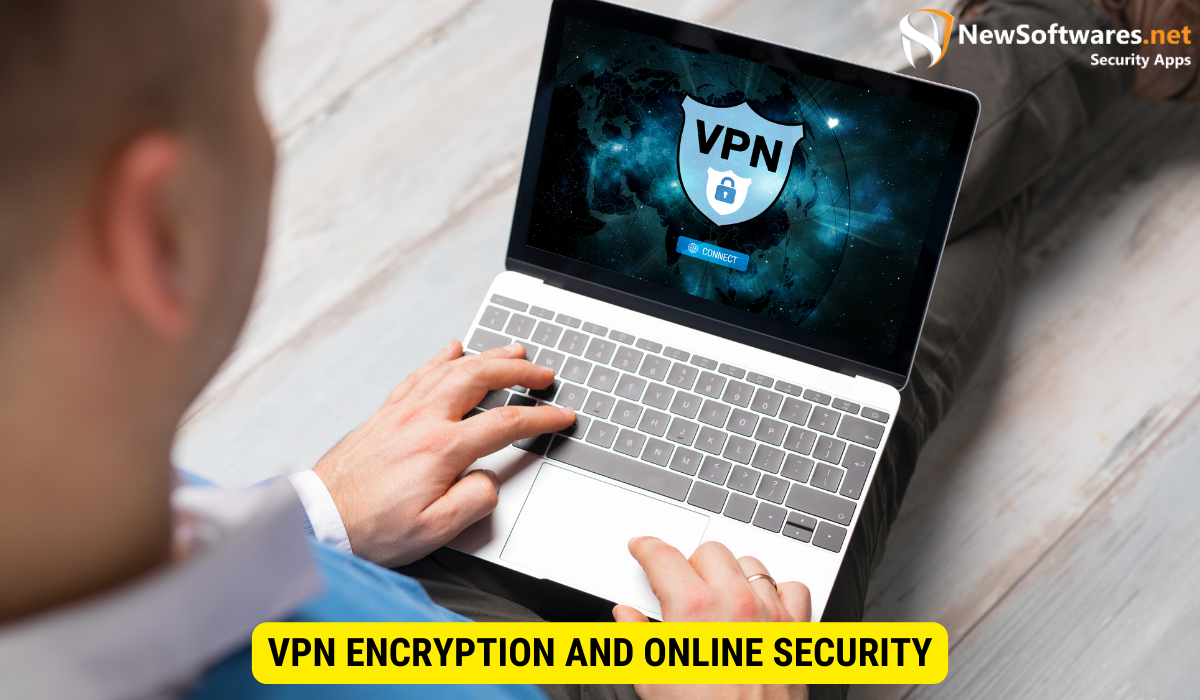VPNs safeguard data through encryption by creating a secure and encrypted tunnel between the user’s device and the internet. This process turns readable data into coded information, protecting it from unauthorized access, interception, and surveillance, ensuring online activities and sensitive information remain private and secure.
In our current era of digital communications, the importance of maintaining online safety and anonymity is paramount. With the continuous rise in cyber threats and data leaks, individuals are increasingly seeking methods to shield their sensitive information. A primary solution to these issues is the utilization of a Virtual Private Network (VPN). But what mechanisms are involved in a VPN’s data encryption to ensure secure online browsing? This exploration delves into the inner workings of VPNs and their role in encrypting data, a key component of cyber security.
Grasping VPNs and Their Role in Data Encryption

Fundamentals of VPN
A VPN, short for Virtual Private Network, serves as a method for users to establish a protected network over the broader internet. It generates a private network from a public one, encrypting the data transferred between the user’s device and the VPN server. This encryption acts as a shield, securing the data from unauthorized access and maintaining the user’s privacy and security.
On connecting to a VPN, your device forms a secure link with the VPN server. This connection is encrypted, turning any data transmitted into a coded format. This ensures that even if someone captures your data, they would be unable to decipher it without the appropriate decryption key.
A significant advantage of VPNs is their ability to conceal your IP address, a unique number that can disclose your location and online activities. Connecting to a VPN server substitutes your IP address with the server’s, making it challenging for anyone to monitor your online behavior or trace it back to you.
VPNs offer more than just privacy; they enable users to circumvent geographical limitations and access content restricted in their area. By connecting to a server in a different country, you can browse as if you were in that country, accessing region-locked websites and services.
Deciphering Data Encryption
Data encryption involves transforming readable data (plaintext) into a scrambled format (ciphertext) using cryptographic algorithms. This ensures that only those with the correct decryption key can access and interpret the data. Encryption is vital in protecting sensitive information like personal details, financial records, or confidential business documents.
Two primary types of encryption exist: symmetric, which uses a single key for encryption and decryption, and asymmetric, which employs a pair of keys (one public for encryption and one private for decryption). The encryption strength is determined by the algorithm used and the encryption key’s complexity. Advanced Encryption Standard (AES) is a common choice for robust encryption.
Encryption is crucial not just in transmitting data but also for storing it securely. Many organizations encrypt their databases and storage to prevent unauthorized access. Even if someone physically accesses the storage medium, they cannot read the data without the decryption key.
In summary, VPNs and encryption are vital for maintaining privacy and security in the digital realm. By comprehending these technologies, individuals can take proactive steps to protect their online activities and sensitive data.
Decrypting the Connection: How VPNs Encrypt Data
VPN’s Encryption Mechanism
When you initiate a connection to a VPN, your device begins an encrypted communication with the VPN server. All data traversing this connection is encrypted, rendering it unreadable to eavesdroppers, enhancing your privacy, and securing your information from potential compromise.
Various VPN Encryption Protocols
VPNs utilize several protocols to secure data, influencing the encryption’s robustness and security level. Common protocols include:
- OpenVPN: A secure and flexible open-source protocol that supports numerous encryption algorithms.
- IPSec: Uses strong cryptographic methods to ensure data confidentiality and integrity.
- WireGuard: Known for its speed and simplicity, employing cutting-edge cryptographic techniques.
- SSTP: A Microsoft-developed protocol that uses SSL/TLS encryption for secure VPN connections.
Breaking Down VPN Data Encryption
The encryption process in a VPN involves several stages:
- Data Preparation: Data is segmented into smaller packets for transmission.
- Key Exchange: A secure key is shared between your device and the VPN server to ensure only the correct key can decrypt the data.
- Encryption: Data packets are encrypted using the chosen protocol, like AES.
- Tunneling: An additional encryption layer is added, bolstering security.
- Transmission: The encrypted data is sent through the secure tunnel to the VPN server and then to the desired internet destination.
The length of the encryption key is crucial; a longer key means more combinations to crack the encryption, enhancing security. Modern VPNs typically use 128-bit, 256-bit, or higher key lengths.
VPN Encryption and Online Security

Enhancing Privacy with VPN Encryption
VPNs create a robust barrier against privacy intrusions by encrypting your internet activities, including browsing, downloads, and communications. They prevent ISPs and other entities from tracking your IP address and location, maintaining your anonymity.
Counteracting Cyber Threats with VPN
VPN encryption acts as a deterrent against cyber threats, protecting sensitive data on vulnerable networks like public Wi-Fi. It ensures secure access to online banking, emails, or corporate networks, mitigating breach risks.
FAQs
Is VPN Encryption Infallible?
While VPN encryption offers significant security, it’s not foolproof. The encryption’s strength depends on the protocol and key length. Users should select reputable VPN providers and adhere to security best practices.
Does VPN Encryption Slow Internet Speeds?
VPN encryption might cause a slight decrease in speed due to the computational resources needed for encryption and decryption. However, with modern protocols and hardware, the impact is typically minimal.
Are All VPNs Equally Secure?
No, VPN providers may use different encryption protocols and key lengths, affecting security levels. Opting for a service that prioritizes strong encryption is crucial for optimal protection.
Conclusion
VPN encryption is a cornerstone of online security, encrypting data and establishing a secure connection to protect user privacy and defend against cyber threats. Understanding VPNs, encryption methods, and their benefits is essential in today’s digital age. By employing a reputable VPN and practicing secure online habits, individuals can navigate the internet with confidence, knowing their data remains private and protected.
